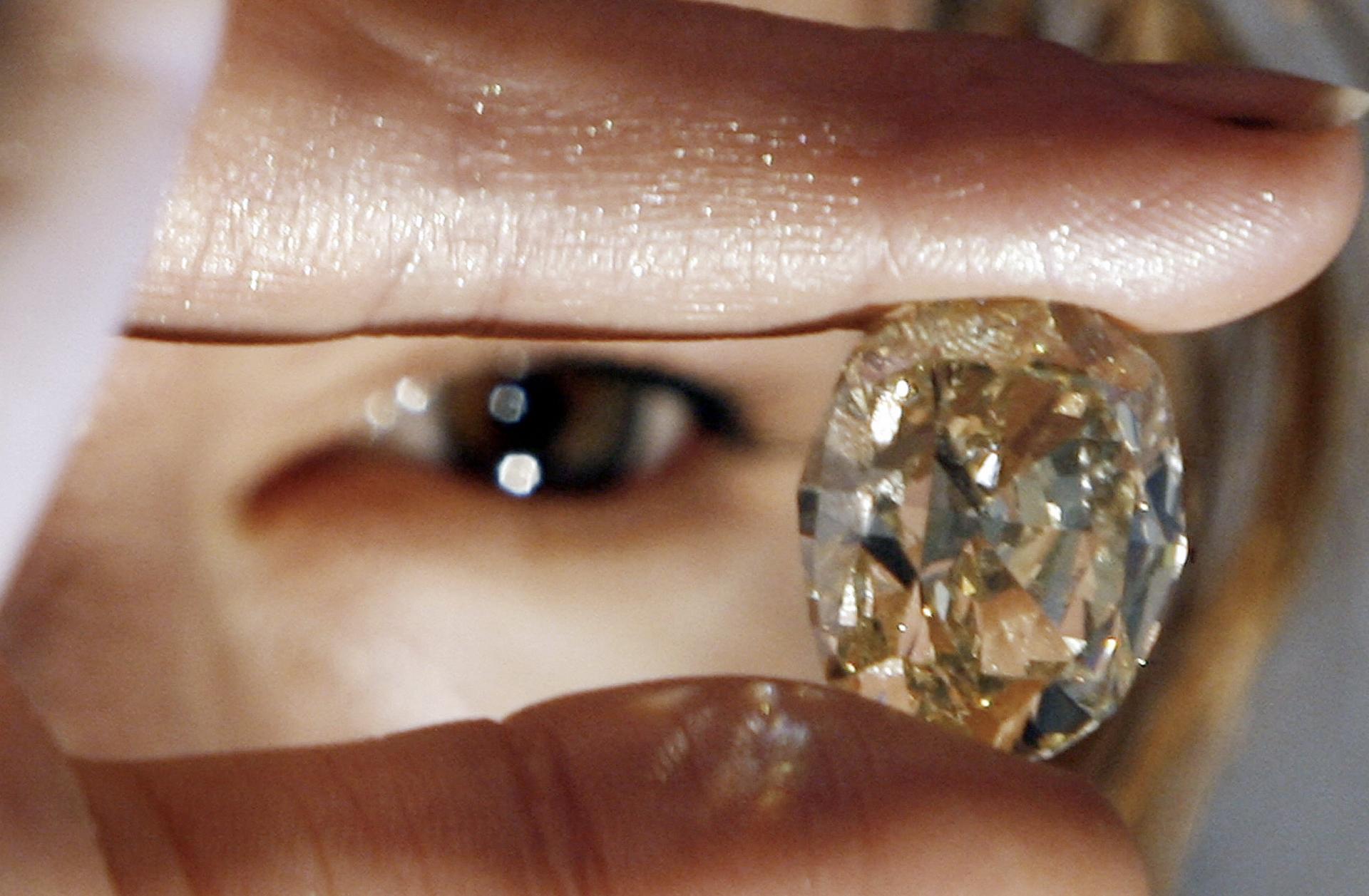Zimbabwe’s blood diamonds to fund violence, charges Global Witness
The Kimberely Process lifted the ban on Zimbabwe diamond exports.
BOSTON — Zimbabwe's diamonds, already dripping in blood, may become bloodier.
There is mounting evidence that Robert Mugabe is stashing the gem profits to finance violence in upcoming elections, according to a new report by Global Witness.
Diamond mine officials loyal to Mugabe are secretly caching millions earned by the country's diamond mines in tax-free havens such as Mauritius, Hong Kong and the British Virgin Islands, according to investigations by the activist group.
Zimbabwe's lucrative alluvial diamond fields in the eastern Marange Valley, are now under the control of Mugabe and his Zanu-PF party, with mine executives including retired and current police and military officers. This raises fears that some of the money will be used to finance violence and intimidation in the impending election campaign.
"If the next election is accompanied by violence there is a real risk that any bloodshed will be funded by diamond revenue," said Nick Donovan, a senior researcher for GlobalWitness.
“Zimbabwe desperately needs diamond revenues for health and education services, not AK 47s and flash cars for the elite,” said Donovan. “Zimbabwe must ensure that diamond mining companies are not used as an off-budget cash cow by ZANU PF loyalists in the military and police.”
Zimbabwe's 2008 elections were marked by widespread violence by Mugabe's police, army and militias, according to Amnesty International, Human Rights Watch and several other independent rights groups.
More from GlobalPost: Zimbabwe's mines still rife with abuse
The Mugabe government has recently begun to set up army and militia camps across the country, raising fears that it plans to unleash a new round of violence, funded by the diamond money, to intimidate voters to support Mugabe and his ruling party, Zanu-PF.
Mugabe has called for elections in 2012 to end the troubled three-year coalition with former opposition leader Morgan Tsvangirai.
Since the Marange diamond fields were first discovered in 2003 the gemstones scooped up have sold for more than a billion dollars. The diamonds remaining are worth more billions, according to mining experts.
Mugabe did not leave that wealth alone. His government canceled the mining lease of a British company and in 2008 the army violently seized control of the diamond fields, using helicopter gunships and troops against Zimbabwean civilian miners. Some 200 people were killed and many others wounded and tortured when the army sealed off the diamond fields, according to human rights groups.
The diamond concessions have been allocated to companies controlled by Mugabe loyalists, including army and police officers, both retired and active. Violence and slave-like working conditions continue at the diamond mines, according to human rights groups.
Despite the evidence that Zimbabwe's diamonds are mined with violence and are funding the abuses of the Mugabe regime, the international diamond regulation body, the Kimberley Process, has approved their sale to international market. Last year Global Witness pulled out of the Kimberley Process charging that the body should not have given its seal of approval to Zimbabwe's diamonds.
Where have Zimbabwe's diamond profits gone?
Finance Minister Tendai Biti reports that this year the government treasury will earn $600 million from the diamonds, a figure far below what experts say it should be. Biti says that he needs more diamond money to pay teachers and other civil servants who have been on strike.
Diamond profits are being channeled to companies in Mauritius, Hong Kong and the British Virgin Islands, according to investigations by Global Witness. Those tax-free centers allow companies to hide corruption, tax avoidance and wild spending in Zimbabwe outside the national budget.
Related: Blood diamonds are forever
One diamond company is the Chinese mining and construction company, Anjin, and its board includes senior police, military and defence ministry officials, according to GlobalWitness.
One of the largest diamond firms, Mbada Diamonds, operates behind "a complex and opaque company structure," said Global Witness. A former top officer in the Zimbabwe Air Force holds a 25 percent stake in Mbada. Neither of these companies have released financial information to show who benefited from the diamond sales.
Global Witness continues to urge the world diamond industry to stop trading in diamonds that are funding human rights abuses.
Global Witness recommends that the Zimbabwean government should pass legislation that bans serving members in Zimbabwe’s security sector from exerting any control over mining companies – including being the beneficial owners of subsidiaries of companies operating in the country’s sector.
An there should be an immediate audit of every diamond concession granted so far in Marange and the details of the owners should be published, including the Mbada and Anjin companies.
More worries about Zimbabwe's impending elections have been sparked by the government's action to close down 29 non-governmental organizations, including Care International, operating in the key Masvingo province.
Mugabe's regime suspended the operations of non-governmental organizations ahead of the 2008 elections, preventing the rural areas from getting much-needed food aid and allowing the government to unleash violence and intimidation without the danger of being reported by independent groups.
The suspension of groups like Care, the Zimbabwe Peace Project and the Zimbabwe Community Development Program has heightened fears that Zimbabwe will see a new round of violence ahead of the elections.
Mugabe has called for elections in 2012, although he agreed in a 2008 power-sharing deal that the polls would not be held until 2013, after a new constitution has been put in place. South Africa and the 15-nation Southern African Development Community had endorsed the power-sharing agreement, so Mugabe will be breaking those pacts if he holds elections in 2012.
More from GlobalPost: Blood diamonds: Still for sale in Antwerp
Our coverage reaches millions each week, but only a small fraction of listeners contribute to sustain our program. We still need 224 more people to donate $100 or $10/monthly to unlock our $67,000 match. Will you help us get there today?
